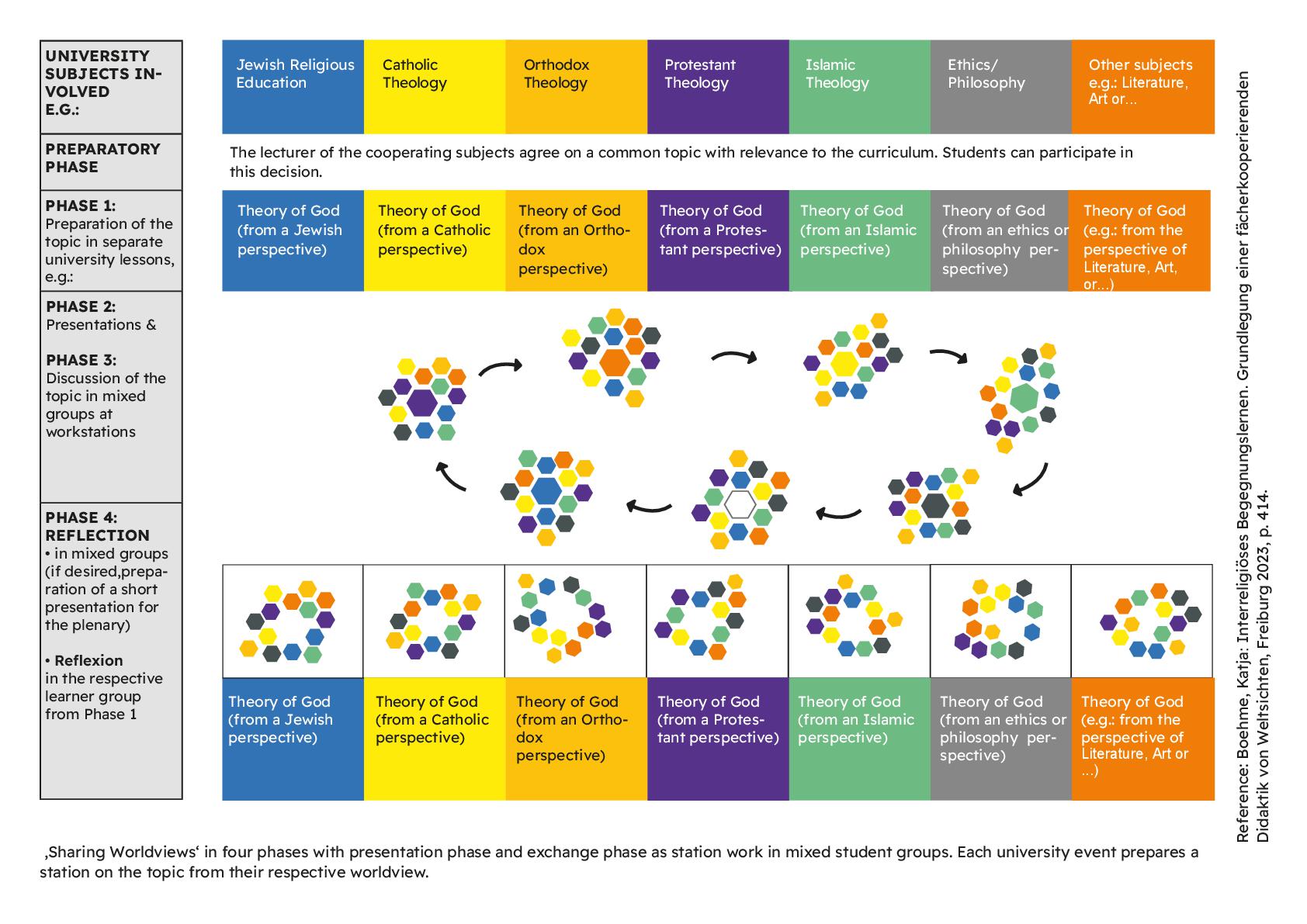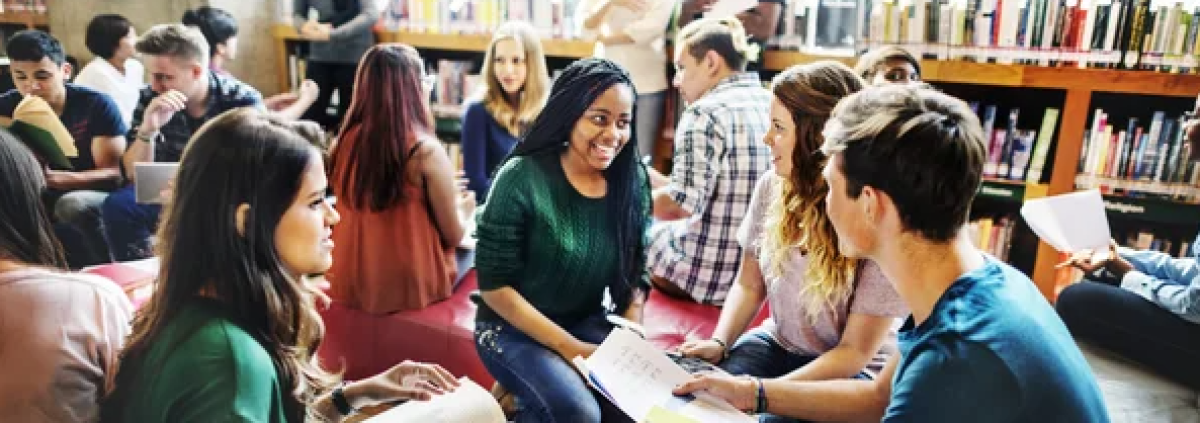Future teachers must be able to handle the plurality of various worldviews such as religious or secular in a professional manner. Especially in teacher education they need to have the chance to develop this competency. An aspect of this competency is that educators are able to foster their students’ ability to respectfully communicate with individuals who have different worldviews.
Learning in Encounter is an enriching educational experience for pre-service teacher students. As an educator you can implement Learning in Encounter at your university or join the programme and connect with other universities which practice Learning in Encounter. Students and teachers can also participate in our additional qualification programme where they learn the theoretical and practical basics of Learning in Encounter.
Additionally, you will find teaching material which includes thematic and didactical suggestions on teaching Learning in Encounter. This material was developed by experts who actively teach in field´s related to worldview diversity. The material is based on the four-phase concept of 'Sharing Worldviews: Learning in Encounter for Common Values in Diversity':
The following four didactic phases (see graphic below), which have been tested in projects at universities since 2011 form the base of Learning in Encounter:
Phase 1: The participating lecturers agree on a specific topic which they will prepare in their courses. Under the guidance of their lecturers, students acquire knowledge about the topic and prepare a presentation of the topic from a subject-specific perspective. In the material library, you can find examples of topics and lesson materials. (“Materials” on the right)
This preparation is followed by a study-day of Learning in Encounter. Two phases take place on this day.
Phase 2: The participating students meet on a day of encounter held either at a participating university or online. In small, mixed groups, students present the common topic to each other from their own perspective and from the perspective of their subject of study.
Phase 3: The students share their prepared perspectives and personal views on this topic in their small mixed group.
Phase 4: Students reflect on the increase of their knowledge on other perspectives and the dialogue´s quality. This phase occurs in their own university course but can also already take place during the study day in the small mixed-groups.
By applying this concept and using this platform´s materials, you support future teachers´ acquisition of the skills necessary for respectful interreligious, intercultural, and interdisciplinary dialogue.

